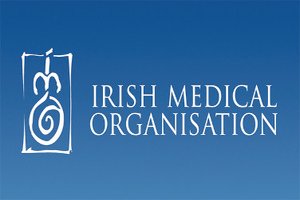IMO AGM 2021, Virtual Conference, 17 April
A panel discussion took place at the IMO AGM entitled: ‘Covid-19 – Experiences from the frontline.’ Clinical Editor of the Medical Independent Ms Priscilla Lynch interviewed a panel of doctors on the frontline about their experiences of Covid-19 and the lessons they have learnt.
The panel featured: Dr Maitiú Ó Faoláin, GP, Ashbourne and Medical Director, GP-Led Vaccine Clinics at the Helix; Dr Mary O’Riordan, Public Health Specialist, Health Protection Surveillance Centre (HPSC); Dr Catherine Motherway, Consultant in Anaesthesiology and Intensive Care Medicine, University Hospital Limerick; Dr Gabriel Beecham, Specialist Registrar in Anaesthesiology and Intensive Care Medicine, Children’s Health Ireland at Crumlin; and new IMO President and Public Health Specialist Dr Ina Kelly.
Dr Ó Faoláin, who was the first speaker, provided an insight into how Covid-19 has affected the working lives of GPs. He said this time last year, the world of general practice “changed utterly”. However, he also pointed out that “stressful situations like this can be a push towards innovation”. New channels of communication were opened up with online portals and video consultations.
“A lot of these technologies has been already sought by GPs,” he said.
“Overall, there is a lot of learning. I think the HSE has finally gotten around to recognising that general practice has got to be catered to. They were slow in coming, but they are there now.”
He described the lack of personal protective equipment (PPE) at the beginning of the pandemic as frightening and stressful. However, he praised the Executive for securing adequate PPE provision after the difficult initial months had passed. Dr Ó Faoláin also acknowledged how GPs were vaccinated “preferentially so we could serve the community”. He expressed gratitude to hospital colleagues who invited GPs to be vaccinated from spare vaccines in the acute sector to expediate the process.
The next speaker was Dr O’Riordan. She noted the difficulty that public health and preventative medicine has traditionally experienced in receiving adequate resources. While the HPSC had information systems in place in the event of outbreaks, the “magnitude” of data required as a result of the crisis caught the Centre somewhat off-guard.
“Everyone was looking for information,” according to Dr O’Riordan.
“We had systems in place. But every sector wanted bespoke guidance. We hadn’t quite anticipated the magnitude that was required.”
She compared the need to establish adequate information systems during the Covid-19 pandemic to “building a bridge in the middle of a tornado”. However, Dr O’Riordan said many countries have faced the same challenges and that Ireland deserves credit for its response. Dr Motherway said intensive care specialists were “very, very, very scared” during the early days of the pandemic.
“Not necessarily for ourselves, but for patients we might not be able to treat,” she said. It was particularly concerning to witness the devastating impact Covid-19 had on a “well-resourced” healthcare system, such as that in northern Italy. Before Covid-19, Dr Motherway said properly resourcing intensive care units (ICUs) in Ireland with an adequate number of beds was “not on the agenda”. This changed due to the fear that the pandemic could result in the country’s under-resourced acute system being overwhelmed.
“It was an unfortunate way to realise that we have a major problem,” she said.
Such has been the public commitment to invest in ICU capacity, Dr Motherway hopes politicians “won’t be able to back down”. Talking about the NCHD experience, Dr Beecham said February and March of 2020 was a time of extreme flux for the group, as it was for the health service as a whole.
“Across hospitals, rota patterns had to change entirely to build redundancy so that if people became sick other members of staff could step in,” he said. “People were being prepared to work in areas they wouldn’t normally work in, people without critical care experience.”
With exams cancelled or postponed, and travel restrictions imposed, a lot of doctors in training found their
future plans had “disappeared into the ether”, according to Dr Beecham.
“It is going to take some time yet, I think, for the situation to settle,” Dr Beecham said regarding the overall effect of Covid-19 on healthcare.
“I can’t see how medical practice is going to go back to the way it was before. There is going to be a pre-Covid era and a post-Covid era. The way we deliver medicine in 2021 is different to how it was delivered 12 months ago…. I still don’t think we are quite there yet in how to navigate this new world. So it is an ongoing concern.”
Dr Beecham thanked the public for complying with social distancing restrictions, which helped frontline health workers to do their jobs.













Leave a Reply
You must be logged in to post a comment.